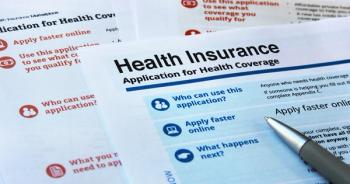
Policy
Latest News
Latest Videos

More News

As health care moves toward a value-based payment model, the pharmacy benefit is going in the opposite direction, one that places unit cost over clinical appropriateness.

Of the 10% of women contacted for this survey who said that they or their partner had ever sought fertility assistance, only 7% were able to get the necessary care; cost was cited as the top reason for not being able to access fertility services.

Medicaid expansion is associated with improved care and increased survival rates for patients with certain breast cancers, but future studies should focus on whether Medicaid expansion mitigates the disparities between Black and non-White patients.

Kimberly Westrich, MA, of National Pharmaceutical Council, and Adam Colborn, JD, of AMCP, run through the current status of lawsuits and lawmaking at the federal and state levels related to pharmacy benefit managers and cost-shifting programs.

Medicaid, Medicare, and private insurance programs all showed significant variability in expenditures based on social and nonclinical factors.

Among near-poor Black and Hispanic individuals, Medicare Advantage was associated with increased vision care and some, although not uniform, reductions in access disparities vs traditional Medicare.

Groundbreaking proposal to expand contraception coverage under the ACA marks the most significant update in over 10 years.

The AMCP Nexus 2024 annual meeting covered a variety of hot health care topics impacting managed care pharmacy in the present and future.

Many women remain unaware that the Affordable Care Act (ACA) mandates cost-free preventive services; however, ongoing legal challenges threaten the future of this coverage.

Experts explored the potential impacts of a Trump or Harris administration on the future of health care.

A review of positions and track records of Vice President Kamala Harris and former President Donald Trump on reproductive health, the future of the Affordable Care Act, prescription drug costs, health care consolidation, and a proposed Medicare home health benefit.

A new letter signed by more than 230 members of the House urges Congress to not only block the scheduled 2.8% reimbursement cut, but also reform the Medicare Physician Fee Schedule.

The prevalence rates of metabolic dysfunction–associated steatohepatitis (MASH) and metabolic dysfunction–associated steatotic liver disease (MASLD) are likely underestimated using claims data alone.

Amidst ambiguous international guidelines for first-line treatment of opioid use disorder, a new population-based study sheds light on the benefits of methadone vs buprenorphine/naloxone for holding off treatment discontinuation.

Miriam Godwin, CMMI, National Kidney Foundation, touches on the gaps in kidney care that public policy can address, as well as the importance of thinking about the long-term benefits of value-based care.

Lecanemab (Leqembi; Eisai/Biogen) received traditional approval from the FDA in July 2023, following an accelerated approval in January 2023, to treat adult patients who have Alzheimer disease.

During CHEST 2024, Maxine Dexter, MD, Kaiser Permanente, discussed her belief in the vital role of physicians in public health advocacy, drawing from her legislative work on issues as a former Oregon State Representative.


CMS released a preliminary list of 101 generic drugs for its Medicare $2 Drug List Model, which aims to cap out-of-pocket costs at $2 per month for select medications.

According to KFF’s annual Employer Health Benefits Survey, the average premium for family coverage now stands at $25,572, with workers contributing an average of $6296 annually.

CMS actuaries foresee a gradual rise in per capita health spending, slowing initially but eventually outpacing economic growth.

Hereditary breast cancers are caused by germline mutations, which are genetic mutations inherited at conception and so called because they originate in germ cells, those that develop into reproductive cells and become eggs in female individuals and sperm in male individuals.

Economic incentives and patent protections drive development of innovative medications. Drug prices are determined by consumer demand, not production costs. Therefore, governmental regulation risks future investment in research and development.

The legacy of redlining continues to harm minority health, with Black individuals facing higher rates of health issues, linked to environmental factors and limited access to resources in regions previously redlined.

The 25th International AIDS Conference took place July 22-26 in Munich, Germany, and one of the sessions delved into the potential impact of civil society laws on the 95-95-95 targets as laid out in the UNAIDS Global AIDS Strategy for 2021 to 2026.

















